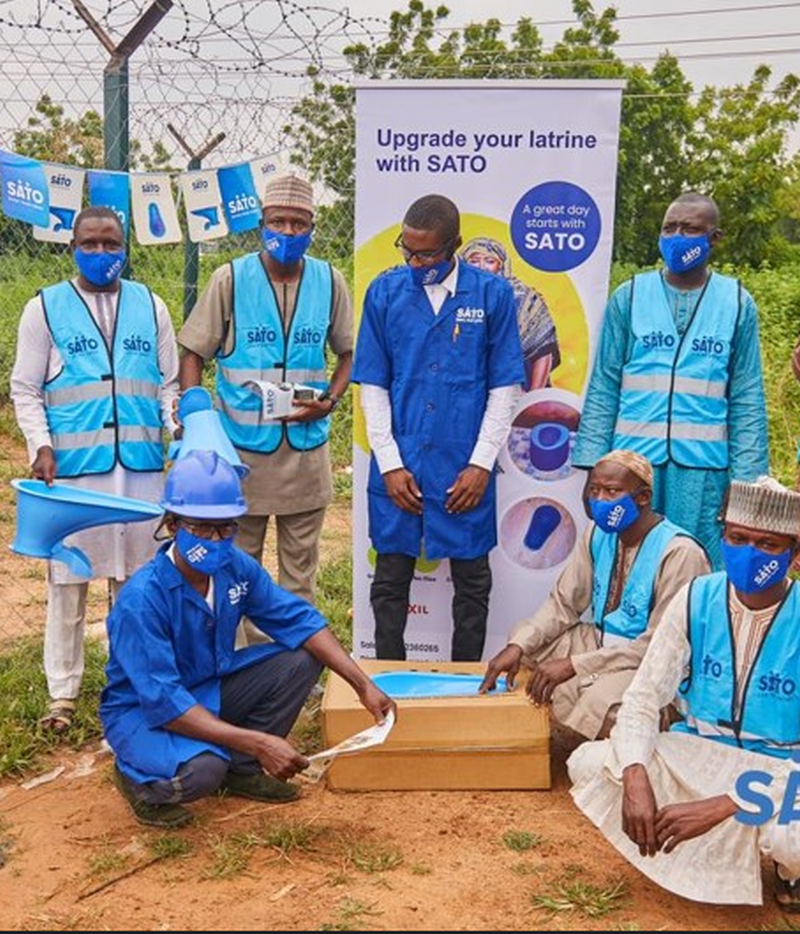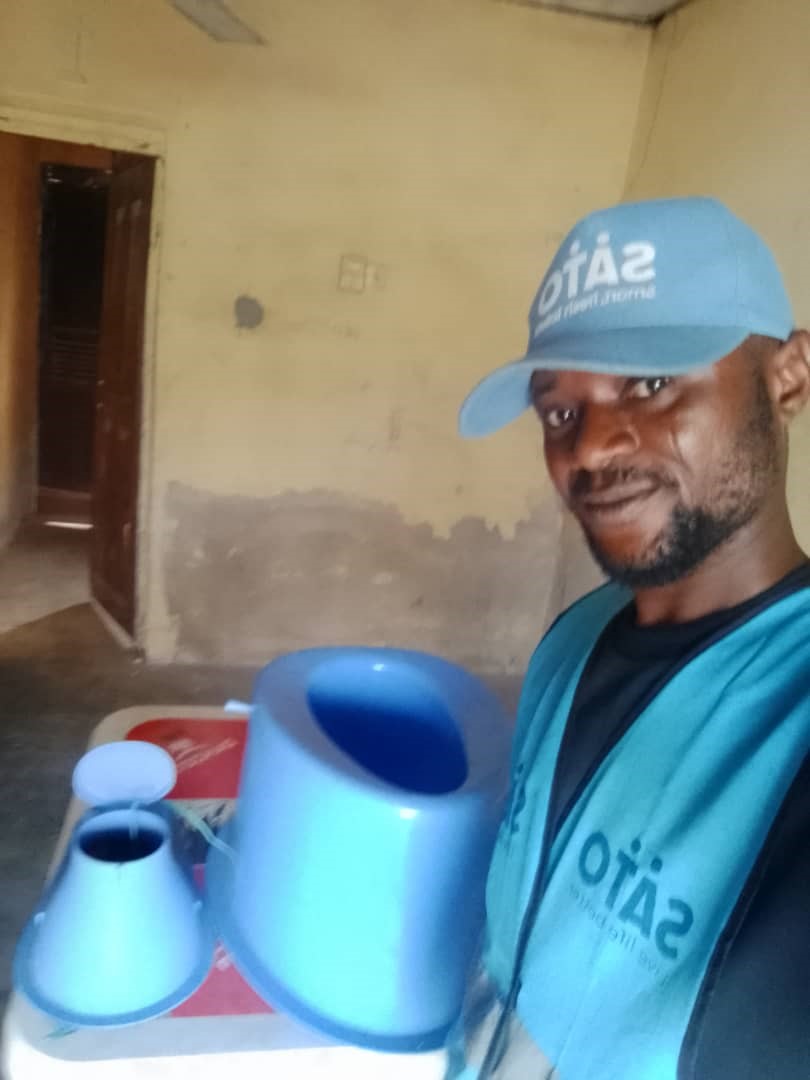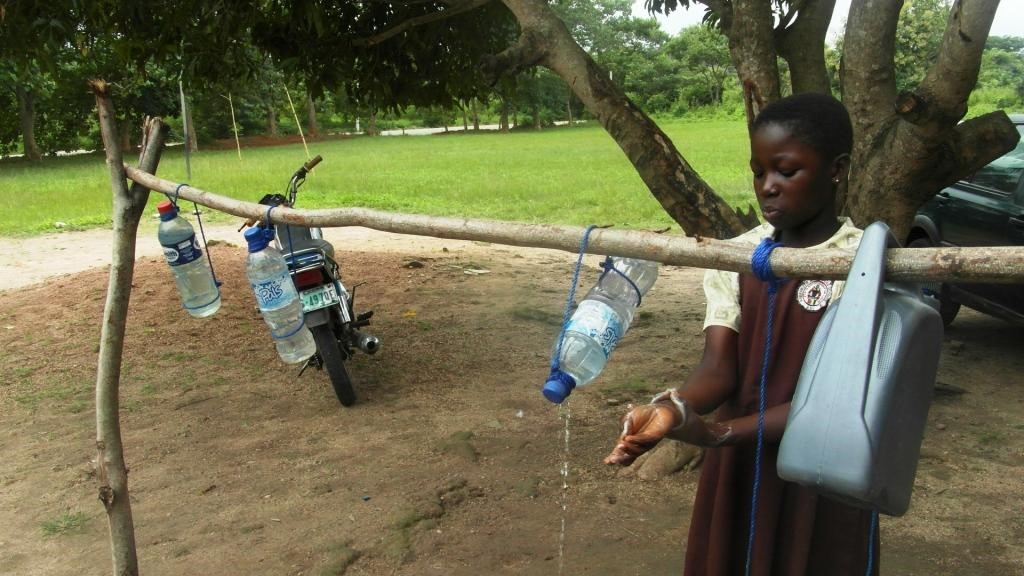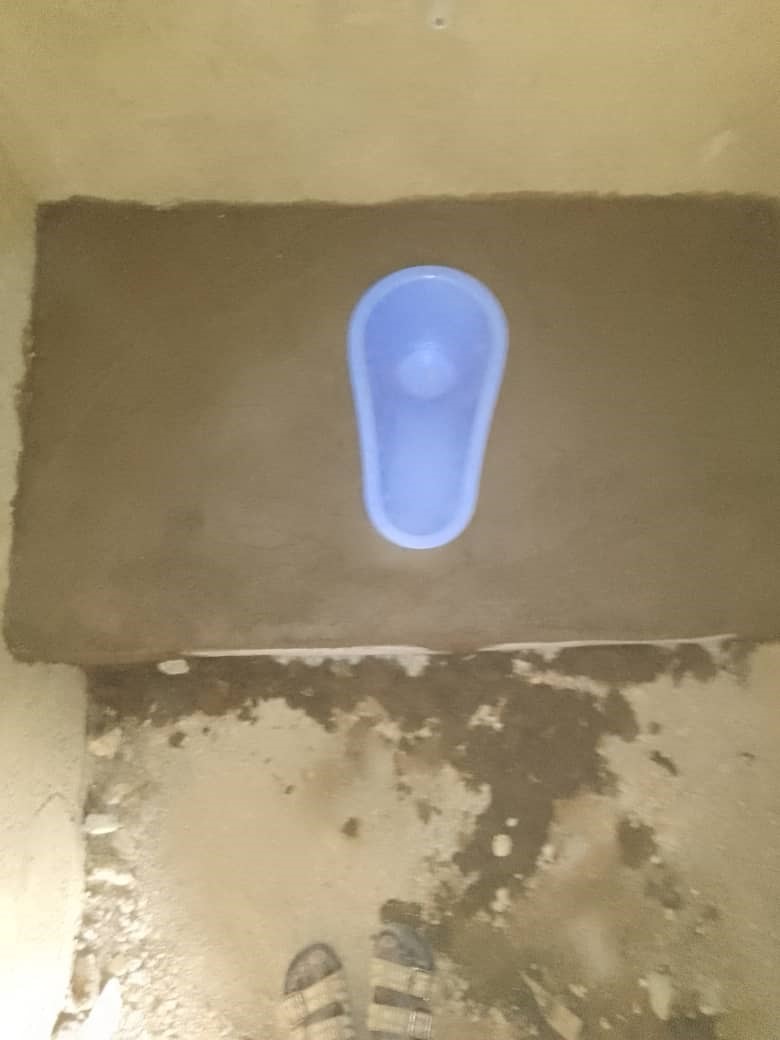How ‘cheap plastic’ is helping to deal with Nigeria’s open defecation problem
Six federal monuments dot Kwali area council of the Federal Capital Territory (FCT), but the area is still very rural. In the shadow of any of the monuments, it is still quite easy for Yabagi Imame to take a dump in the bushes of Yangoji, but that’s becoming very unacceptable lately. The entire area council—all […]

Six federal monuments dot Kwali area council of the Federal Capital Territory (FCT), but the area is still very rural. In the shadow of any of the monuments, it is still quite easy for Yabagi Imame to take a dump in the bushes of Yangoji, but that’s becoming very unacceptable lately.
The entire area council—all 1,206 square kilometres—is on its way to becoming free of open defecation—and it is linked with the introduction of cheap, plastic toilets.
They are called “satopans”—for “safe toilet pans”, made by SATO. They have been around in parts of Asia and sub-Saharan Africa but only began to surface in Nigeria after the country’s bold step to end open defecation in 2018.
Made of polypropylene, the pan is unique for a self-closing counterweighted trap door that creates an air-tight seal, which closes off pit latrines from the open air, thus minimising odours for enhanced user experience.
The pan flushes clean on less than one litre of water—that’s less than 20% of water required to flush a regular toilet pan. It is easy to install—embedded into the floor like a regular pan in new construction or retrofitted in existing toilets.
The pan and stool are made of plastic, easy to install and have mechanism to trap odours, keeping flies away
Two different makes—a squat pan and a sit stool—have been in use since 2018. A third inclusion in the form of a tap that dispenses water from a PET bottle joined the line this year.
What they have going for them is their convenience, ease of use, affordability, ability to manage waste and reduce risk of WASH-related infections.
The country’s bold step was President Muhammadu Buhari declaring a state of emergency in the water, sanitation and hygiene (WASH) sector, and launching the national “Clean Nigeria: Use the Toilet” campaign to jumpstart the country’s journey to becoming “open defecation free” by 2025.
Up until then, some 47 million Nigerians defecated in the open—bush, fields, canals, dumps, just any open space. That’s according to a 2018 survey to map the national outcome routine for water, sanitation and hygiene.

The link between poor sanitation and infection highlights illness, low productivity and loss of learning opportunities. It is an economic loss of 1.3% of gross domestic product annually—nearly N455 billion, almost four times Edo state’s budget for 2023.
Some 100,000 children aged under five die each year from diarrhoea, mostly linked to unsafe water and sanitation.
Frequent diarrhoea and other WASH-related diseases means severe stunting for one in four children aged under five and wasting for one in 10.
They also mean absence from school or work—while taking time to heal or taking care of a sick relative, resulting in low productivity.
In homes where children are responsible for fetching water, time spent in search of water and frequent episodes of WASH-related diseases results in reduced school attendance and poor educational outcomes.
There’s this to consider when it comes to open defecation—loss of dignity, increase risk of insecurity and violence against women.
The national declaration birthed the “Clean Nigeria”, bringing civil society groups, non-government organisations, the media, development partners and private sector to achieve universal access to safely managed sanitation.
Before 2018, organisations in the forefront of the campaign, like UNICEF and WaterAid, imported satopans from Indonesia for WASH campaigns. The pans began being produced under a licence model in Nigeria in 2018.
And that went together with showcasing the pans and training masons in installation. It expanded from sponsored campaigns to getting on the open market using toilet business owners like Japhet Gumbo.
UNICEF donated 50,000 satopans in 2021 to assist the Clean Nigeria campaign, which in turn distributed satopans to 138 communities in Kwali.
Thousands of satopans and stools have been distributed by non-profit groups in corporate social move to upgrade latrines, but they are also getting on the open market

Kwali was one of three rural communities considered for the campaign; it was chosen over Kuje and Abaji because the area council showed more interest.
It began with two communities, Pai and Yangoji; after them, eight more communities joined in, then their numbers grew to 138.
“Households indicated interest in constructing their toilets,” says Sunday Usman, desk officer for FCT’s Rural Water and Sanitation Agency in Kwali. “So far, 66 communities claimed ODF [open defecation free]; 35 were certified [ODF].”
The outbreak of cholera in 2021 in Kwali showed how good sanitation prevented diseases. In the two wards, Pai and Yangoji, where the intervention was in place, no case of cholera was reported.
“We are still gathering data from primary health care regarding cases of WASH-related diseases in the communities [where the intervention was done],” adds Usman.
But focus group discussions with homeowners and toilet business owners favour the plastic toilets for three reasons: it can flush with water as little as a kettleful, flies can’t gain access to faeces and smells are reduced.
“Their experience is that SATO reduced smells, prevented flies from accessing faeces, and was relatively cheap—with one and a half bags of cement—to install,” says Usman. “And that it has created additional jobs.” That’s for masons in the chain and toilet business owners.
Japhet is one of three toilet business owners working in Abuja to maintain spread of plastic toilets, He has installed them in more than 280 households in Kwali
Japhet Gumbo is one of three toilet business owners trained and operating in Abuja. He has completed 285 installations in Kwali alone, where he lives and works.
“My work provides solutions to toilets,” he says in an attempt to describe what he does. The solution comes down to the design of the pans and stools.
The stool takes the pan a step further, providing a comfortable sitting position that accentuates inclusion—in the household, for the disabled, aged, pregnant women and children, says Michael Adegbe, country lead for SATO in Nigeria.
“It makes it easy to have a beautiful toilet experience.”

“This year, we plan to start production of sato tap. a new design that came up during COVID, using PET bottles. [Just] fill a bottle with water, turn it over and it becomes a dispenser that replaces the tippy tap we see in the villages. It is portable, and affords minimal contact between a user and the device.”
2Tippy taps have been useful in rural locations where running water is scarce to maintain sanitation. Schoolgirl Eniola washes hands under a tippy tap
Safe cheap toilets are popping in communities around the north of the country—and, in rare cases, in the Niger Delta. Fertiliser maker Indorama has signed a deal to distribute 25,000 toilets to agro dealers, farmers and its workers in Kano, Bauchi, Sokoto and Zaria. Some 70 masons have been in training.
It began after a pilot in Eleme, Rivers State that demonstrated access to affordable and water-efficient sanitation systems easy to use and maintain. It is uncertain if other products were put alongside the pans, but one study involving similar products in Zambia indicates a user trial and social marketing campaign pilot could potentially aid efforts to effectively and affordably decrease incidence of WASH-related disease transmission.
The pans and stool have penetrated the north of the country better. Adegbe surmises that’s because northern communities are more receptive to any solution that helps any challenge they are facing, more than southern communities.
The plastic toilets come cheaper than regular ceramic sit or squat toilets—N3,500 for satopan, N8,000 for satostool and N3,000 for a satotap.
The products are cheap but the brick-and-mortar superstructure, the cost of digging might increase the cost for poor families.
A sit pan installed in a home in Kwali
Making sanitation solutions affordable does not equate with readiness to pay, as a study in Kenya found, where the products were studied.
It found household willingness to pay was determined by a number of factors, including the household’s proximity to the toilet, income, the product itself, socioeconomic status, satisfaction with the current toilet, increased proximity to the toilet.
The study concluded that increased proximity to the toilet, higher income and some loan facility or subsidy to poor households could increase demand for such sanitation technologies.
The use of satopans and stools in Kwali showed the same lesson. “One lesson is community members should form groups to contribute for construction of toilets,” says Usman.
“We noticed other households not being able to construct their toilet, even with sato, due to complaints about money. Our next action is sanitation marketing, with financial options of toilet ‘adashe’.”

It is a form of thrift saving, in which members contribute meagre sums, which is pooled and used to construct toilets for members in sequence, one at a time.
“This we hope will get the result expected as the complaint of ‘no money’ will be addressed,” says Usman.
But the biggest challenge against this cheap plastic toilet solution in Nigeria is legislation.
“There are lots of states yet to criminalise open defecation. People still feel you can do it and get away with it. Nobody can query them,” says Adegbe.
“A lot of buildings, residential buildings, marketing and shopping centres come up without toilet facilities. That should be a criminal offence.
“There are residential houses that do not have a toilet for the families living there. What happens is, when they are pressed, everyone goes into the nearest bush, canal or stream and they do their business, which is really wrong.
“If there is a law to criminalise that act and also make it important for every household, so that once you are building a structure, there must be a toilet component to it.”
This story was produced in partnership with Nigeria Health Watch through the Solutions Journalism Network, a non-profit organisation dedicated to rigorous and compelling reporting about responses to social problems.
